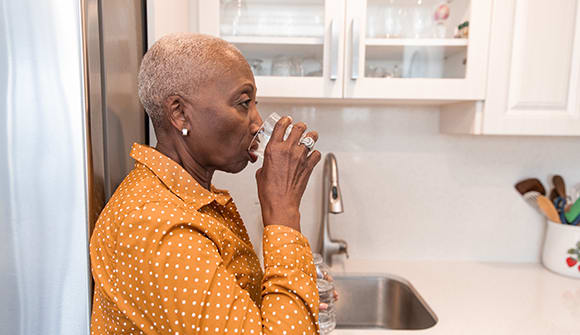Is your college kid struggling?
How to keep tabs on your child’s mental health after he or she leaves home.
Article Author: Juliette Allen
Article Date:

Classic brick buildings.
Frisbee on the quad.
Clusters of kids on the cusp of adulthood toting books and backpacks.
Movies and television shows often paint an idyllic picture of the college experience. Parents and teens alike hold tight to those images as they hug each other goodbye, many for the first time ever. Many teens will thrive in college, but just as many will struggle adjusting to the new lifestyle. And that’s nothing to be ashamed of.
New classes, new friends, new you
College can lead to an overload of new situations to which teens have to adapt, said Cathy Connolly, PhD, a psychologist with Baptist Behavioral Health.
“Academically, they are managing their own classes and may also feel more pressure about their workload because it ties into their careers and future work,” said Dr. Connolly. “Socially, teens may feel homesick because they are on their own for the first time. They also have to manage new responsibilities, such as waking up on their own, studying, taking medications, doing laundry, making healthy food choices and deciding when to go to sleep. This can be overwhelming.”
Not to mention having to make new friends and adjust to life with a roommate in a tiny dorm room.
Dr. Connolly also cautioned that college is a time when many young adults have the “freedom” to navigate their own limits on drinking alcohol, going out with friends and playing video games, while balancing sleep and studying. The perfect balance can be hard to find, and many students will only learn theirs through trial and error.
A sobering statistic
Each student is different, with some more likely to reach out for help if they’re struggling with mental health than others.
A recent ABC News report shines light on the darker side of what many call “the best years of your life.” According to the report, while suicide is the 10th-leading cause of death across the United States population, it is the second-leading cause among college-aged students.
“When I work with teens transitioning to college, I make sure to help them look up the college counseling center and talk through signs of when they should go to talk to someone,” Dr. Connolly said. “Many college counseling centers offer typical counseling but will also have walk-in hours for students in crisis. Some offer workshop or presentations.”
Know the signs
It can be difficult to tell what’s going on in a teenager’s head when he or she is living under your roof. But it’s even more difficult once they’re out of the house. What’s the best way to give your child freedom, while remaining in touch with his or her mental health?
Dr. Connolly recommended parents build a relationship with open lines of communication before the child leaves for college. Parents also need to understand what’s realistic to expect from their child: some students may check in daily, while others may only do so once a week. Dr. Connolly encourages teens to maintain verbal communication, whether through a phone call or video chat, with their parents at least weekly.
“That way, the parent can ask how it’s going a few weeks in, and suggest going by the counseling center if things seem amiss,” Dr. Connolly said.
Changes in behavior that last more than a couple weeks could signal that your child needs professional help. These include:
- Changes in appetite or sleep that he or she may mention in conversation
- Changes in how he or she handles emotions, such as irritability, frustration, tearfulness or anxiety that seems disproportionate to the situation
- Difficulty attending classes due to low energy, sleep issues or anxiety
- A tendency to stay in his or her room or loss of interest in typical hobbies or interests
- Physical symptoms like persistent headaches or stomachaches
- Difficulty focusing or concentrating
- Feelings of worthlessness
- Thoughts about suicide or self-harming behaviors, like cutting
Take your time
College is an adjustment for all new students. Dr. Connolly warns teens she counsels that they will likely experience ups and downs for the first two semesters.
“I ask them to be patient with themselves,” she said. “They need to understand what is healthy in terms of sleeping, eating and working out. It’s equally important for them to make time to do something relaxing and have some alone time. If a student notices changes in his or her mood and body that persist for more than a few weeks, it may be a good idea to visit the college counseling center for some support.”
If your child is struggling to adapt to life away from home, Baptist Behavioral Health has experts trained to work with teens and young adults. To speak with a patient coordinator, call 904.376.3800.
Source: ABC News



